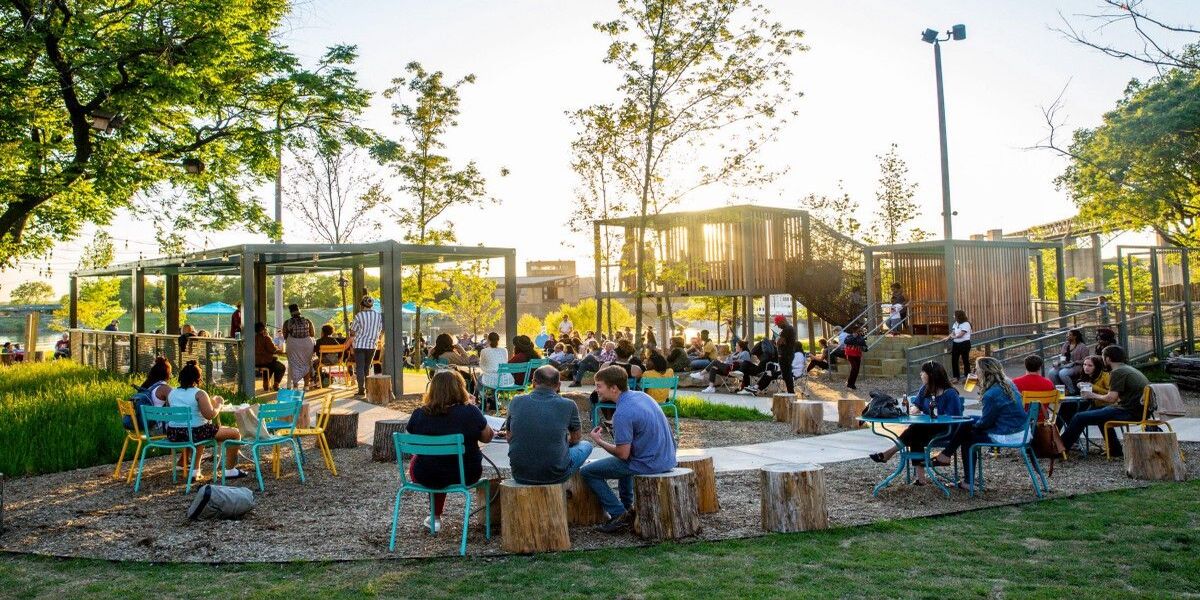Parks are vital components of urban and rural environments, offering much more than just open spaces. They serve as sanctuaries for nature, places for recreation, and hubs for community interaction. In an increasingly urbanized world, parks provide essential green spaces that contribute to the physical, mental, and social well-being of individuals and communities.
This article explores the multifaceted importance of parks, delving into their ecological, health, and social benefits, and underscores the need for their preservation and expansion in modern society.
The Ecological Role of Parks
Parks play a crucial role in maintaining ecological balance within urban areas. As cities expand, natural habitats are often destroyed to make way for infrastructure, leading to a loss of biodiversity. Parks offer a refuge for various plant and animal species, preserving biodiversity within urban landscapes. They serve as miniature ecosystems where trees, plants, and wildlife coexist, contributing to the ecological health of the area.
Trees and plants in parks absorb carbon dioxide and release oxygen, helping to mitigate the effects of pollution. They also act as natural air filters, trapping dust, pollen, and other particulates, which improves air quality.
Moreover, the green spaces provided by parks help regulate urban temperatures, reducing the heat island effect that is common in densely populated cities. This cooling effect is particularly important in mitigating the impacts of climate change on urban areas.
In addition to their role in air purification and temperature regulation, parks also play a vital part in water management. Parks often feature ponds, wetlands, and other water bodies that help manage stormwater runoff. These natural systems filter water, reducing the risk of flooding and replenishing groundwater supplies.
By maintaining and expanding parks, cities can enhance their resilience to environmental challenges, such as extreme weather events and water scarcity.
 Health Benefits of Parks
Health Benefits of Parks
The health benefits of parks are well-documented and multifaceted, impacting both physical and mental well-being. Parks provide spaces for physical activity, such as walking, jogging, cycling, and playing sports, which are essential for maintaining a healthy lifestyle. Regular exercise in a park setting has been linked to reduced risks of chronic diseases such as obesity, heart disease, and diabetes.
Moreover, spending time in nature has significant mental health benefits. Parks offer a serene environment that helps reduce stress, anxiety, and depression.
The natural surroundings and the opportunity to disconnect from the hustle and bustle of urban life can have a calming effect on the mind. Studies have shown that even short visits to parks can improve mood, increase feelings of happiness, and enhance cognitive function.
For children, parks provide opportunities for unstructured play, which is crucial for their physical and cognitive development. Playgrounds, open fields, and natural areas in parks encourage creativity, social interaction, and physical activity.
The presence of parks in neighborhoods has also been linked to lower rates of childhood obesity, as children are more likely to engage in outdoor play when they have access to safe and inviting green spaces.
Parks are not just beneficial for individual health; they also contribute to public health. By providing spaces for physical activity and relaxation, parks can help reduce healthcare costs associated with lifestyle-related diseases. Additionally, parks promote social cohesion and community well-being, which are important determinants of public health.
Social and Community Benefits
Parks are social spaces that foster a sense of community and belonging. They are places where people from different backgrounds can come together, interact, and build relationships. In a world where social isolation is becoming increasingly common, parks offer opportunities for social interaction and community engagement.
Public events, such as festivals, concerts, and community gatherings, often take place in parks, bringing people together and strengthening community bonds. These events create a sense of shared identity and pride among residents, contributing to the overall social fabric of the community.
Parks also serve as venues for civic activities, such as volunteer programs, clean-up initiatives, and environmental education, which encourage community involvement and stewardship.
For families, parks provide a safe and accessible space for spending quality time together. Picnics, family outings, and group activities in parks help strengthen family bonds and create lasting memories. Parks also offer opportunities for intergenerational interaction, as people of all ages can enjoy the amenities and activities that parks provide.
Moreover, parks contribute to social equity by providing free or low-cost recreational opportunities for all residents, regardless of their socioeconomic status.
In many urban areas, parks are some of the few places where people can enjoy nature and engage in recreational activities without spending money. This accessibility is crucial for ensuring that all members of the community can benefit from the health and social advantages that parks offer.
 The Economic Value of Parks
The Economic Value of Parks
Parks also have significant economic value, contributing to the prosperity of cities and communities. Well-maintained parks can increase property values in surrounding areas, as people are often willing to pay a premium for homes located near green spaces.
This increase in property values can lead to higher tax revenues for local governments, which can be reinvested in community services and infrastructure.
In addition to boosting property values, parks also attract tourists and visitors, generating revenue for local businesses and economies.
Popular parks, such as national and state parks, often serve as major tourist destinations, drawing visitors from around the world. The economic impact of tourism related to parks includes spending on accommodation, food, transportation, and recreational activities, which supports local jobs and businesses.
Furthermore, parks contribute to job creation through their maintenance and management. The development and upkeep of parks require a range of skilled and unskilled labor, providing employment opportunities in landscaping, horticulture, environmental management, and recreation. Parks also support jobs in related sectors, such as tourism, hospitality, and retail.
The Need for Park Preservation and Expansion
Despite the numerous benefits of parks, they are often under threat from urban development, budget cuts, and environmental degradation. In many cities, green spaces are being encroached upon by construction projects, reducing the availability and quality of parks.
Budget constraints can lead to the neglect of park maintenance, resulting in deteriorating facilities and unsafe conditions for visitors.
To preserve and expand parks, it is essential for communities, governments, and organizations to prioritize green spaces in urban planning and development.
This includes protecting existing parks from encroachment, investing in the maintenance and enhancement of park facilities, and creating new parks in underserved areas. Public-private partnerships, community involvement, and innovative funding strategies can all play a role in ensuring that parks continue to thrive and serve their vital functions.
Moreover, the design and management of parks should be guided by principles of sustainability and inclusivity. Parks should be accessible to all residents, including those with disabilities, and should reflect the diverse needs and preferences of the community.
Incorporating green infrastructure, such as rain gardens, green roofs, and permeable pavements, into park design can enhance their environmental benefits and contribute to the overall sustainability of urban areas.
Conclusion
Parks are indispensable assets that provide ecological, health, social, and economic benefits to individuals and communities. They are vital green spaces that contribute to the well-being of urban and rural areas, offering sanctuaries for nature, spaces for recreation, and hubs for community interaction.
In an increasingly urbanized world, the preservation and expansion of parks are essential for ensuring a healthy and sustainable future. By recognizing the importance of parks and taking action to protect and enhance them, we can create more livable, resilient, and vibrant communities for generations to come.






